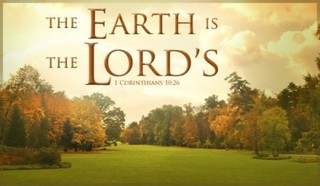- Recent Translations
- All Translations
1 Corinthiërs 10:29
Share
Settings
1 Corinthiërs 10:29 Meaning and Commentary
Conscience I say, not thine own
Which is well informed about these things, and is fully persuaded that an idol is nothing, and that things sacrificed to idols are nothing; and as they cannot profit a man, or help forward his comfort, peace, and happiness, so they cannot hinder them:
but of the others;
either the weak brother, or the unbelieving master of the feast; it is for the sake of their consciences such food must not be eaten, lest either the one should be grieved, or the other reproach:
for why is my liberty judged of another man's conscience?
this is not an objection of the Corinthians, setting forth the unreasonableness of being condemned, for the use of their Christian liberty by another's conscience, be he who he will, believer or unbeliever, when they had an undoubted right to such an use, and their own consciences did not condemn them: but they are the words of the apostle, expressing his own sense, that it was not right and fitting that he should make use of his liberty, and eat under such a circumstance as here pointed out, and so his liberty should be condemned as sinful by another man's conscience; since the weak believer would be apt to censure, judge, and condemn him as a libertine, and the unbeliever as an atheist, or one that had no regard to any religion at all; and therefore he reasons, that it was best to abstain from eating, rather than expose his liberty to such a censure and condemnation.

